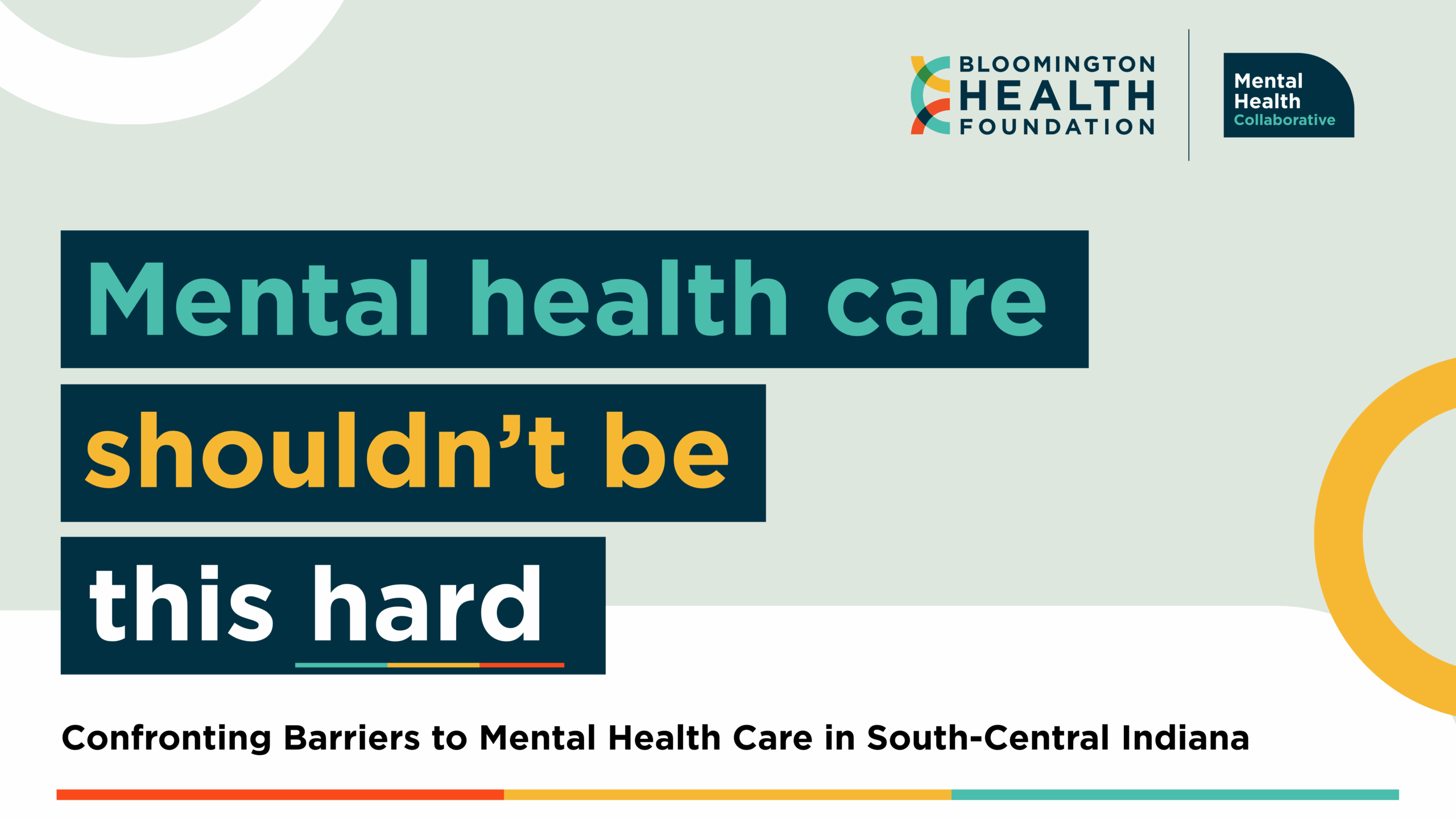Confronting Barriers to Mental Health Care in South-Central Indiana

The mental health challenges facing South-Central Indiana are as urgent as they are complex. In 2023 alone, 1.3 million adults across Indiana—20% of the state’s population—lived with a mental illness. Yet even with insurance, far too many found it difficult to access care when they needed it most. This isn’t just a public health issue—it’s a community-wide crisis, and it demands a collective response.
At Bloomington Health Foundation, we’ve listened closely to those on the front lines—individuals navigating the mental health care system, families trying to find help for their loved ones, and providers stretched thin by the growing demand. What we’ve learned is clear: mental health care isn’t just hard to find; it’s hard to stay connected to, and even harder to navigate alone.
Breaking Down the Barriers
The obstacles that prevent people from receiving the care they need are varied, but they often overlap in painful ways. Many counties across Indiana simply don’t have enough mental health providers to meet the demand. And when services are available, insurance doesn’t always cover them adequately—leaving families with high out-of-pocket costs they can’t afford.
Even for those who manage to secure care, there are gaps in how services are coordinated. Too often, people fall through the cracks because providers can’t easily share critical information or because follow-up care is inconsistent. The result? Fragmented treatment and frustrating delays.
The situation is even more alarming for young people. Over the past decade, rates of persistent sadness and hopelessness among high school students have soared—up 41% from 2009 to 2019. Suicide rates among adolescents rose 62% from 2010 to 2020. In October 2021, leading pediatric and psychiatric organizations declared a national emergency in child and adolescent mental health. In Bloomington and beyond, we are feeling the impact.
A Local Solution, Built Together
In response to these challenges, Bloomington Health Foundation is proud to lead the Mental Health Collaborative—a strategic, community-driven effort designed to make mental health care more accessible, more effective, and more humane.
The Collaborative centers around three interconnected solutions:
Peer Navigators with Lived Experience
There is power in shared experience. By hiring and training Peer Navigators who have personally experienced mental health challenges, we aim to help individuals move through the system with the guidance and empathy of someone who’s been there before. These navigators will walk alongside clients—not just pointing to resources, but making sure they reach them.
A Universal Release of Information
One of the most frustrating aspects of seeking care is having to retell your story over and over. A universal release of information will allow providers to securely and appropriately share patient information, reducing duplication and enhancing the continuity of care.
An Integrated Care Coordination Platform
This platform will serve as the technological backbone of our approach—linking mental health providers, social services, and clinical teams so that care is better coordinated, more timely, and more responsive to each individual’s needs.
Moving Forward, Together
We know that no single organization or program can solve this crisis alone. But through collaboration—with local providers, schools, nonprofits, and community leaders—we can begin to tear down the barriers that have kept so many from getting the care they deserve.
We believe everyone deserves access to compassionate, coordinated mental health care. That belief fuels our work every day—and it’s the cornerstone of the Mental Health Collaborative.
The path forward may not be easy. But with community, compassion, and commitment, it is possible. And it starts here.



